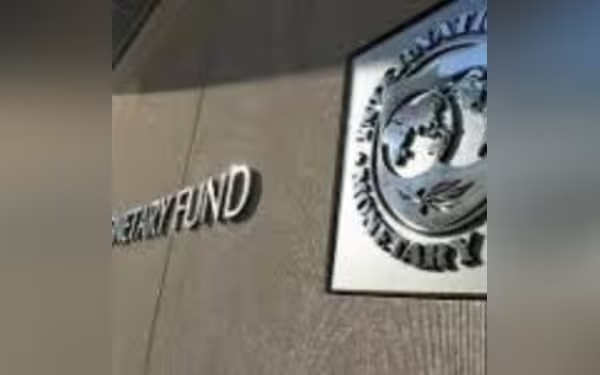Saturday, November 16, 2024 09:38 PM
IMF Demands Pakistan Halt New SEZs to Dissuade Chinese Investments
- IMF requests Pakistan to stop new industrial zones.
- Demand threatens Chinese investment in Pakistan's economy.
- Pakistan's growth plans under CPEC face significant challenges.
 Image Credits: pakistantoday
Image Credits: pakistantodayIMF demands Pakistan to halt new SEZs, impacting Chinese investments and economic growth plans.
The International Monetary Fund (IMF) has recently made a significant demand that could impact Pakistan's economic landscape. The IMF has asked Pakistan to halt the establishment of any new industrial zones that provide incentives for investment. This request is particularly concerning as it may hinder Pakistan's efforts to attract more Chinese industries, which are crucial for the country's economic growth.
According to a report released by the IMF on October 10, the authorities in Pakistan will need to refrain from offering incentives such as tax breaks and subsidies to both new and existing special economic zones (SEZs). The IMF believes that this approach will create a "level playing field" for all businesses looking to invest in Pakistan. This condition comes at a time when Prime Minister Shehbaz Sharif is actively trying to persuade Chinese companies to relocate their industries to Pakistan, thereby boosting projects under the Belt and Road Initiative.
Pakistan had ambitious plans to develop at least nine special economic zones as part of the China-Pakistan Economic Corridor (CPEC) project, which are currently at various stages of development. However, the IMF's demand raises concerns about the future of these projects. Nathan Porter, the IMF’s mission chief for Pakistan, emphasized the need for a fair investment environment that does not compromise the country’s tax base. He pointed out that Pakistan has historically provided protection or concessions to sectors with low productivity, which has hindered the country from achieving sustainable growth rates comparable to its regional peers.
This demand from the IMF is expected to have immediate repercussions, particularly for a new export processing zone that the government plans to establish at the site of Pakistan Steel Mills in Karachi, the country’s commercial hub. Following the approval of a $7 billion loan from the IMF, Pakistani authorities are working to attract around 100 major Chinese industries to invest in textile parks that the Ruyi Shandong Group is set to develop in Sindh and Punjab later this year.
The Sharif government has been actively courting investors by offering special tax incentives, including exemptions from taxes and customs duties on imported goods for businesses operating in these industrial zones. However, the IMF's latest conditions may force a reevaluation of these strategies.
China has played a pivotal role in developing major infrastructure and energy projects in Pakistan, significantly contributing to the nation’s economic corridor project. While these investments have been beneficial, they have also left Pakistan grappling with substantial debt. As the country navigates these complex economic challenges, it remains to be seen how the government will balance the need for foreign investment with the IMF's stringent requirements.
The IMF's demand to halt the establishment of incentivized industrial zones poses a critical challenge for Pakistan. As the government seeks to attract foreign investment, particularly from China, it must find a way to comply with the IMF's conditions while still fostering an environment conducive to economic growth. The path forward will require careful planning and strategic decision-making to ensure that Pakistan can achieve its economic goals without compromising its financial stability.













